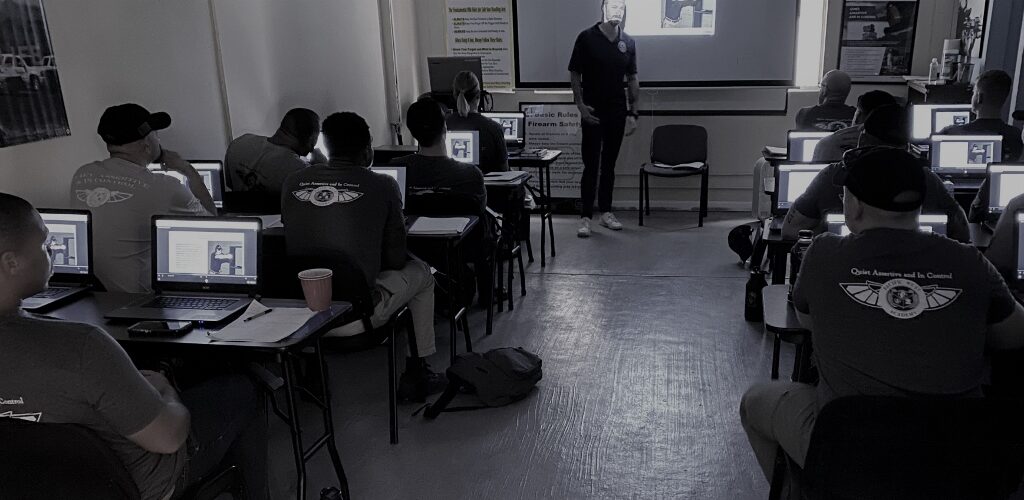

Bodyguards versus Executive Protection Agents
Bodyguards versus Executive Protection Agents
What’s the Difference?
When researching security industry roles and job descriptions, you’ll often see the terms “bodyguard” and “executive protection agent” used interchangeably, but there is a difference between the two roles/titles, and it lies in the training executed and certifications earned by an individual — let alone the experiences that ensue beyond that.
The Gist of It
Bodyguards and executive protection (EP) agents require specialized training to excel in their respective roles. Bodyguards typically receive training in physical combat techniques, surveillance, and defensive driving. Their focus lies in protecting their clients from immediate threats, often using their physical presence as a deterrent.
Executive protection agents, however, undergo comprehensive training in areas such as risk assessment, threat analysis, crisis management, tactical firearms proficiency, and emergency medical response. Their training equips them to handle a wide range of security challenges, emphasizing preventive measures and strategic planning. In short, executive protection agents undergo more comprehensive training, which also qualifies them for a wider range of roles in the security industry.
Executive protection agents can serve as bodyguards, but bodyguards cannot necessarily serve as executive protection agents — the requirements, certifications, and training involved are greater.
The Scope of It
Bodyguards are most-commonly used to protect high-profile and public figures, and even small groups. Their duties predominantly include close-proximity protection, including crowd control, to ensure a client’s safety during public appearances and events. Many bodyguards are taught a lot of reactive methods and techniques.
The duties of an EP agent extend beyond physical protection. EP agents are practiced in threat assessment, intelligence gathering, travel logistics, secure transportation, and securing premises. Their expertise is holistic; not siloed.
Important Elements of the EPA’s Role
Similar to a bodyguard, an executive protection agent (EPA) is a security professional who specializes in protecting high-profile individuals from potential harm. These can be celebrities, politicians, business executives, and other VIPs. Their focus is to reduce risks and maintain their clients’ safety. In reality, this often means going beyond basic security measures, as EPAs usually conduct a comprehensive risk assessment, threat analysis, and proactive security planning.
Key Aspects of the Role:
- Risk Assessment EPAs analyze potential threats and risks, both physical and digital, to identify areas where clients may be exposed.
- Security Planning Your duty as an EPA is to develop and implement detailed security plans. This can include planning and applying perimeter security, surveillance detection, and emergency response protocols.
- Close Protection EPAs provide physical protection. Expect to work closely with a client while they travel, attend public events, and go about their daily activities.
- Crisis Management EPAs undergo rigorous training that equips them with the skills to coordinate with law enforcement and respond effectively to various emergencies, such as de-escalating confrontations or evacuating clients from risky situations.
- Discretion and Confidentiality The client’s privacy is a top priority. An expert EPA maintains a low profile and is highly discreet.
- Advanced Skills Many EPAs possess advanced skills such as defensive and evasive driving, first aid, marksmanship, and tactical communication.
The Approach of It
Another distinction between bodyguards and executive protection agents is in their approach to proper security. Bodyguards prioritize immediate reaction and physical intervention to neutralize potential threats. They rely on their physical presence and combat skills to provide a visible deterrent and swift response to any hostile situations. Their goal is to respond quickly to emergencies.
Executive protection agents are more proactive. Their focus is to prevent security threats first. EP agents plan and observe to create a secure environment for their clients. They also incorporate the use of tech to assist in creating seamless operations while keeping a low profile to minimize disruptions.
The Roles in It
Many security roles can be well done by a body/security guard or EP agent, but there are also many exclusive to executive protection agents. Large corporations, along with public figures and families prefer the comprehensive protection of EP agents — and these employers know the difference in quality and holistic protection, and to them, it’s vital.
So, while the common man or even employer of security needs may use the terms interchangeably, it’s necessary to know the difference between the two as an individual pursuing a security career. Knowing the difference between the two equips you with the distinct knowledge and empowers you to educate others pursuing a career in security as well as your future employers.
Security professionals who train to be executive protection agents can cover every facet of the security industry. Because of that, these EP agents get more and greater opportunities that often result in secure, lifelong, and fruitful careers. Many work their way up to become team leaders and directors.
The Training for It
As mentioned, the fundamental distinction between both roles is in the training. At Pacific West Academy we offer classes and certifications to qualify an individual for both roles. If you’re a former military vet interested in applying your skillset to the civilian world, becoming an EP agent could be right for you. If you’re a civilian interested in breaking into the industry, you can also register to become educated as an EP agent, or if you’re not ready to jump fully into PWA’s executive protection program, consider another program we offer for basic security training.
Pacific West Academy has become a leading educator of professionals in the security industry. Our Certified Executive Security Specialist (CESS) Course is our flagship program, which offers classroom and physical training geared toward employment in high-end security positions such as executive protection, residential protection, Driving, technical surveillance countermeasures, and more.
Our program is immersive and includes aid for room and board. We even help our students perfect their resumes and bring in recruiters to assist in job placement and gainful employment wherever they end up! Agents who train at Pacific West Academy, train to be their best!
